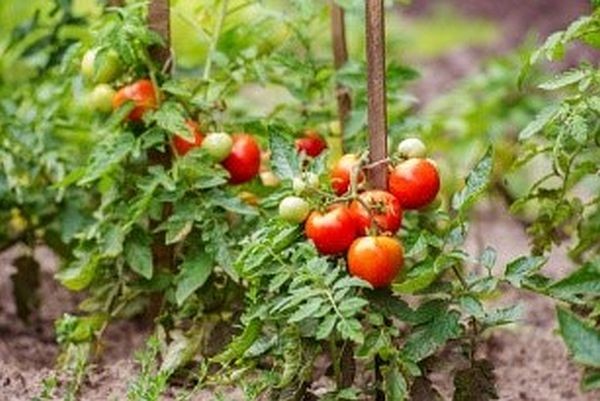No products in the cart.
NEWS
Unlock Bountiful, Flavorful Tomatoes: Could a Wood-Loving Fungus Be Your Secret?
There’s nothing quite like biting into a homegrown tomato bursting with flavor and sweetness. It’s a peak gardening moment! But achieving that perfect harvest often feels like a nutrient marathon for the plant, demanding consistent feeding to keep those vines productive throughout the long growing season. This high nutrient demand often leads gardeners and farmers to rely heavily on fertilizers.
The Challenge of Feeding Hungry Tomatoes
Tomatoes are notoriously hungry plants. They need a steady supply of nutrients, especially phosphorus and potassium, to develop strong roots, healthy foliage, produce flowers, and ripen abundant fruit. Meeting this demand conventionally often involves significant fertilizer application.
The Pitfalls of Traditional Fertilizers
While synthetic fertilizers can provide a quick nutrient boost and increase yield, they come with drawbacks. Applying large amounts can be costly and labor-intensive. More importantly, it can negatively impact the soil ecosystem, reducing beneficial microbial populations crucial for long-term soil health. Excess fertilizer can also lead to environmental issues like nutrient runoff into waterways. And sometimes, despite boosting yield, heavy synthetic feeding can compromise the quality of the fruit – think less flavor or a less desirable texture.
Discovering a Natural Ally: Ceriporia renrata
This is where nature offers intriguing alternatives. While some fungi are notorious plant pathogens, others are incredible allies in the soil. A fascinating discovery, highlighted in recent research, involves a fungus called Ceriporia renrata. Though it’s known in nature for breaking down wood, a specific strain has shown remarkable potential when introduced into agricultural soil, particularly for tomatoes.
Nature’s Nutrient Unlocker
How does a wood-decaying fungus help tomatoes? It’s all about unlocking trapped nutrients. In soil, many essential plant nutrients, including phosphorus and nitrogen added through amendments or present naturally, can become locked up in organic matter or bound to soil particles, unavailable to plant roots. Ceriporia renrata produces powerful enzymes, such as protease and phosphatase. These enzymes act like tiny biological keys, breaking down complex organic compounds in the soil and releasing those locked-up nutrients into a form that plants can easily absorb. It’s like giving your tomatoes access to a hidden pantry in the soil!
More Than Just Growth: The Quality Boost
Field experiments putting this Ceriporia renrata strain (specifically strain HG2011 in one study) to the test showed exciting results. When added to soil where tomatoes were growing, it significantly improved the plants’ nutrient uptake. This led to increased yields, even when fertilizer application was reduced.
But here’s where it gets really exciting for any tomato lover: the fungus didn’t just increase the quantity of tomatoes; it also improved their quality. Researchers found that tomatoes grown with this fungal amendment had enhanced nutritional value and better flavor. This was seen through increases in the sugar-acid ratio (key to that perfect tomato taste), higher soluble sugar content, and improved Vitamin C levels in the fruit. Imagine getting more tomatoes and having them taste better and be more nutritious, all while using less synthetic input!
 Research on beneficial fungus Ceriporia renrata for soil health and tomato growth
Research on beneficial fungus Ceriporia renrata for soil health and tomato growth
Bringing This Innovation Home (or to Your Farm)
The potential of using beneficial microorganisms like Ceriporia renrata as a soil amendment is huge. It points towards a future where we can grow healthier, more productive plants, producing higher-quality food, with less reliance on chemical inputs.
My Journey with Soil Microbes
As someone who’s spent years working with plants and soil, I’ve seen firsthand the incredible power of a healthy, living soil ecosystem. Introducing beneficial bacteria and fungi into the soil fundamentally changes how plants access nutrients and resist stress. While Ceriporia renrata specifically might be a newer discovery for broad agricultural use, the principle is well-established: supporting the soil microbiome is one of the most impactful things you can do for your plants. It’s not just about feeding the plant; it’s about nurturing the soil that nurtures the plant.
Cultivating a Greener Future
Research like this underscores the importance of exploring biological solutions in agriculture. Developing cost-effective, natural supplements derived from beneficial organisms can help reduce the environmental footprint of farming and gardening, contribute to healthier soils, and ultimately lead to more sustainable food production systems. It’s about working with nature, not against it.
Conclusion
The research on Ceriporia renrata offers a glimpse into the exciting possibilities of using beneficial fungi to enhance crop growth and quality while reducing the need for traditional fertilizers. By helping plants access nutrients already present in the soil and boosting fruit quality, this wood-loving fungus could become a valuable tool for growers seeking more sustainable and effective methods. Exploring products that support a healthy soil microbiome is key to unlocking your garden’s full potential. At Biogarden.Asia, we’re passionate about sustainable solutions that harness the power of nature to help you grow amazing things. Discover how supporting your soil life can transform your garden or farm, and share your experiences with us!



